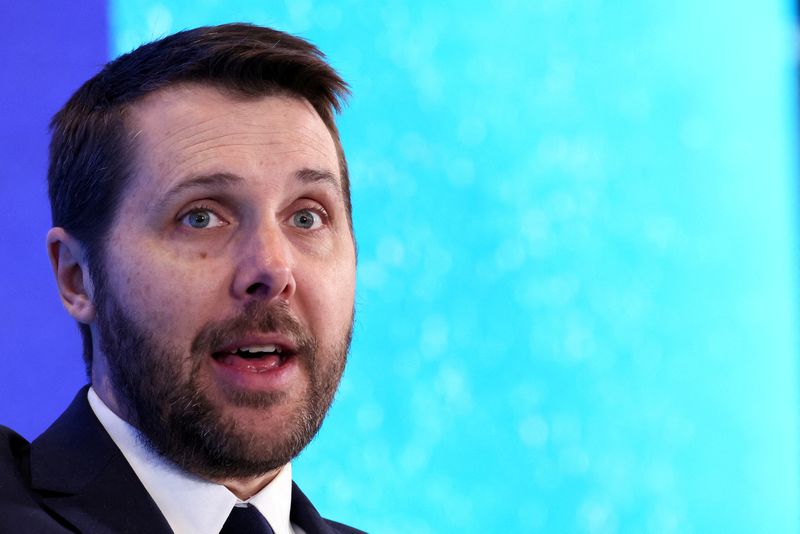Harris adviser Deese calls for Marshall Plan on clean energy
2024.08.22 18:01
By Timothy Gardner
WASHINGTON (Reuters) – Brian Deese, an economic adviser for Vice President Kamala Harris’ presidential campaign, called on Thursday for an economic program to loan allies money to buy U.S. green energy technologies as part of a wider strategy intended to fight climate change.
Deese, who was an economic adviser under President Joe Biden and former President Barack Obama, billed it as a new version of the Marshall Plan, a mechanism of grants set up by President Harry Truman and Secretary of State George Marshall, to help Europe recover after World War Two.
“It should be as generous to our allies as it is unapologetically pro-American in its interest,” Deese told Reuters.
While Deese is promoting the plan independently of his work as a Harris adviser, it could offer insight into potential policies of her presidency should she win on Nov. 5. The Harris campaign did not immediately comment.
Deese helped shape the Inflation Reduction Act, Biden’s landmark legislation that contains billions of dollars to help spur clean energy and fight climate change. He said the IRA and other legislation created one of the biggest opportunities to speed clean energy, but the effort needs a mechanism to bring technologies to allies.
To support the plan, the U.S. should create a Clean Energy Finance Authority, with the ability to issue debt and equity for clean energy projects, Deese said in an article in Foreign Affairs published earlier this week. The plan could be part of a U.S. alternative to China’s “Belt and Road” infrastructure initiative and assure U.S. leadership in a period of friction between global powers.
The new U.S. agency could draw on expertise of the Department of Energy’s Loan Programs Office in assessing the risks and benefits of emerging technologies like advanced nuclear energy, hydrogen power, carbon capture, and geothermal power, Deese said. The LPO issues loan guarantees and low-rate loans to companies with promising technologies that have difficulty getting financing from commercial banks.
To support the plan, Deese also called for tools such as tariffs that favor imports from countries that cut emissions while making steel and other products, and the development of a strategic mineral reserve.
Such reserves would be held by the U.S. and allies to protect against supply chain shortages for the materials key to clean technologies and the domination of critical minerals trade by China.
After Russia’s invasion of Ukraine in 2022, Deese helped set up a record sale of oil from the U.S. Strategic Petroleum Reserve to help moderate gasoline prices for U.S. drivers. That experience helped him see the importance of developing reserves for minerals, he said.

“My hope is we were moving out of the idea stage and into the opportunity to experiment and then build,” such reserves, Deese said.
Energy Secretary Jennifer Granholm said in a Reuters interview in June that the U.S. has been having conversations with allies in the International Energy Agency about collective reserves for critical minerals.








